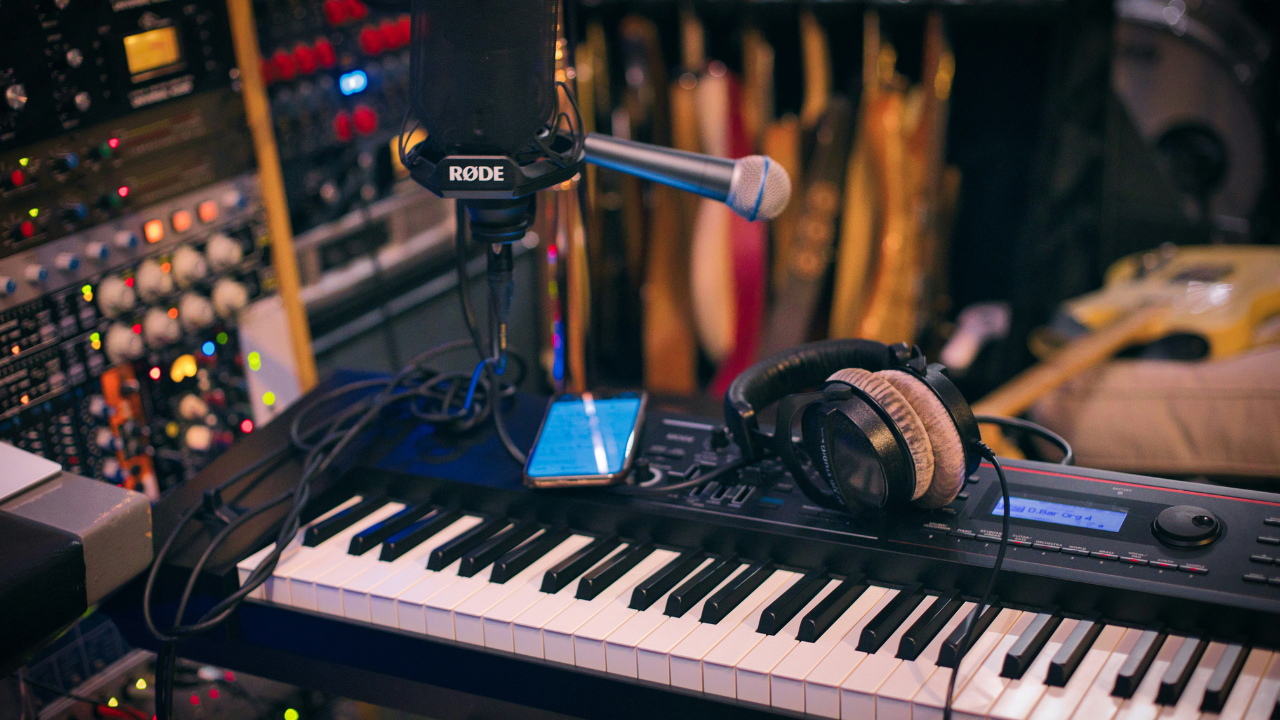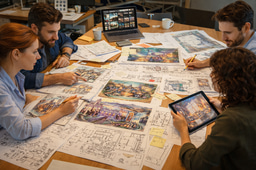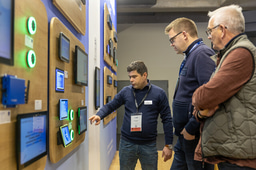The Advancement of Music Production Technology is Straying Independent Artists Away from Record Labels

Many singer/songwriters do not know where to begin when it comes to producing their first record. Maybe they have composed their lyrics and melody but don’t know who to share it with, or how to release it to the world. In the last several years a rise in DIY music, or bedroom production, has made it easier for musicians to get their music heard.
Music production has become more affordable and convenient with the development of Digital Audio Workstation (DAW) software. This flexibility is proving to bring attention to more artists with unique talents, as it’s now easier for the average person to showcase their abilities using advanced-level technology.
It is possible to make quality records under realistic financial budgets. The key to success in the music industry is having a high-quality product that fans will invest in while staying true to yourself. Independent artists often begin by immersing themselves within their local music community to meet others to collaborate with. This is valuable as it provides experience and other potential opportunities. Some artists hesitate to sign with a label due to the risk of losing their identity and having to conform to the label’s branding decisions.
Here are 5 reasons why independent artists are straying away from label deals.
- Record labels give an advance for studio time, but these costs are recouped.
There is never a guarantee that an artist who signs with a label, whether big or small, will have an automatically positive outcome. The upfront costs of creating a single or an album are expected to be paid back later. Labels retrieve a percentage of the royalties at the amount stated in the contract.
- Signed artists do not own their master rights and must conform to what their label wants.
The final product of a song or album would be owned by the label, and the artist does not have a say over where it’s used. The legal rights to their music are forfeited, meaning that their music could be negotiated for publishing deals despite their wishes. In an interview with Billboard, three-time GRAMMY winner and seven-time GRAMMY nominee Chance the Rapper said, “I can do whatever videos I want, I can play whatever shows I want, I can release when I want, talk how I want, freely about any subject.” Signing with a major label can often take someone’s musical freedom away. In addition, they are under a contract to share all profits with the label, which significantly cuts down their net income.
- Digital Audio Workstation (DAW) software makes it possible to create a hit record at home.
Not every singer/songwriter can play an instrument or has a band. Music is now often entirely computerized using DAWs such as Ableton Live, FL Studio, and Apple Logic Pro. For example, Billie Eilish’s hit song “Bad Guy” was produced by her brother FINNEAS on Logic Pro X in her bedroom.
- Good-quality recording equipment can be affordable.
Hourly rates in a music studio are incredibly expensive for the average person, especially if they are kick-starting their music career. High-quality equipment (such as microphones, mixers, speakers, etc.) can be purchased for reasonable prices. For example, the popular Audio-Technica AT2020 Large-Diaphragm Condenser Microphone can be bought for under $100. In addition, the small Focusrite Scarlett 2i2 3rd Gen USB Audio Interface is available on Amazon for $165. People might argue that these expenses will add up, however, for those passionate about this field it could pay off in the long run.
- Not every musician’s top priority is fame.
A well-known record label might provide security in ensuring a musician’s release gets attention. However, what happens when the next deliverable is on a strict timeline and the musician isn’t feeling inspired? As an independent artist, there is less pressure all around and this can promote quality over quantity. The music industry is not easy to break into, and people must not lose sight of the passion behind their chosen career.
The advancement in music technology has greatly affected the music industry over time. More people can pursue a music career, and professionally releasing a record can be done by anyone today. To the music community members, what are your thoughts on studio versus at-home music production? Do you believe people benefit more long term by being signed or un-signed?
Recommended Content
The Immersive Industry Doesn’t Have a Creativity Problem. It Has an Operating Model Problem.





Please sign in or register for FREE
If you are a registered user on AVIXA Xchange, please sign in
"High-quality equipment can be purchased for reasonable prices...People might argue that these expenses will add up"
I think the author of this article is on to something, but fails to mention the audio software (DAW) industry that is going berserk.
It is becoming a pay to play racket akin to online games. The rabbit hole leads to the licensing branch of the software companies.
Think of the departments at a company like Steinberg; One side of the office is making cool stuff and the other side is trying to collect revenue. (Steinberg will completely change their licensing system next year)
The technology for licensing software of DAW's and Plugins seems to be outpacing the R&D of the actual product, to the point where a paid update for a software program boasts its licensing mechanism as the "New Feature".
For the end-user (consumer) this is not only inconvenient, its also creatively stifling, not to mention expensive.
Incidentally, many creatives are turning to stand-alone "groove boxes" to escape the personal computer, the convoluted licensing systems may be one reason why.
The D.A.W. acronym will become synonymous with artistic entropy, if not already. These companies need to get together and decide on some universal software licensing system.
That's the REAL MIDI 2.0.
In order of nasty licensing systems, just to name a few (#1 is the nastiest):
#1 - Waves (Waves Central)
#2- Reason (Reason Companion)
#3- IK Multimedia (IK Product Manager)
#4- Steinberg (Steinberg Download Assistant)
#5- Native Instruments (Native Access)
#6- MPC Beats
#7- Ableton Live
BTW: Just posted to gearspace.com
https://gearspace.com/board/music-computers/1430267-universal-licensing-sytem-real-midi-2-0-a.html#post17056917
What is remarkable to me is that more and more of these tools are becoming more approachable to a wider audience. What’s more is that they are finding more uses outside of mainstream media production. I’ve found use for a lightweight DAW when cleaning up audio received from a client being used in a live event. And I have recommended this same equipment for small operations at places with small budgets who are looking to get into lecture capture as well as podcasting.
My thoughts on the move away from labels: If a label provides the backing capital for the artist, they are a viable help, but the arrangement and output need to mutually beneficial. IMO, the advent of these technologies helps artists get a firm footing in their own sound, and with their audience. These two things together should, in theory, make an artist more appealing to a label, giving them more decision-making power in the agreements if what the artist seeks is assistance expanding their audience and skill craft. But you are correct - the gateway to releasing one’s own music is no longer held open and shut by a single entity in our business. And that is a good thing! #innovationinopenspaces